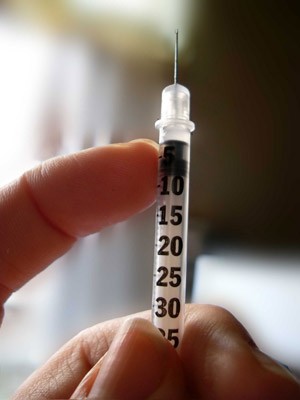Believes Landis probe could drag on, UCI says it hasn’t been contacted yet
 Dismissing some recent criticism that the investigation into claims made by Floyd Landis against his former US Postal Team mates was too expensive, the World Anti Doping Agency director general David Howman has said that such enquiries were crucial to promoting clean sport.
Dismissing some recent criticism that the investigation into claims made by Floyd Landis against his former US Postal Team mates was too expensive, the World Anti Doping Agency director general David Howman has said that such enquiries were crucial to promoting clean sport.
“What is $50 million in the world of sport? It’s a drop in the bucket,” Howman said, according to AP. “You are putting a value on the integrity of sport which I don’t think anybody who is really responsible ought to be doing.”
Legal professionals representing Lance Armstrong have been amongst those who have claimed the investigation is a waste of taxpayers’ dollars, as has former BALCO head Victor Conte. However Howman uses the case of Marion Jones to show that persistent digging into evidence can lead to penalties such as her six-month prison sentence for perjury.
“We’ve been able to ensure that the world knows that she cheated because – at the end of the day, despite years of denial – she admitted it. That’s a stake in the ground that we ought to be looking at more closely,” he said.
Federal investigator Jeff Novitzky played a hugely important role in cracking the BALCO case, and he is driving the current investigation along. The process should be aided by the lessons learned in the previous enquiry. Howman said that the cooperation between sporting bodies and international law enforcement agencies has improved as a result, and dealing with bodies such as Interpol can help greatly.
He said that WADA has not yet been contacted by directly by those conducting the enquiry. However he promised to help if they were asked to do so.
Meanwhile UCI President Pat McQuaid has admitted that if it was shown that Lance Armstrong was guilty of the accusations made against him by Landis, that there would be repercussions for the rider and his reputation.
“If it ultimately goes against Lance Armstrong and he is found culpable and found that he was doping during his career, then it will obviously have an effect on the brand Lance Armstrong and Lance himself to some extent,” he said.
Like WADA, he said that Novitzky and the other investigators had not yet contacted the UCI. However he said that even if they do so and investigate claims such as the alleged bribe paid to cover up a positive test by Armstrong in 2002, that the governing body would be cleared.
“I know the actual facts and the work UCI did during that period in the fight against doping and I know we are completely in the clean from what we did,” he told AP. “We were testing even at that time more than anyone else. If it’s proven these guys were beating the system, they were beating the system put in place by the scientific authorities, by WADA and everyone else.”
He added that the time span in question related to a period before the implementation of the biological passport, which the UCI has claimed has cleaned up cycling.
“The sport has made enough progress in recent years that we are going beyond that, we will survive beyond that,” he said, speaking about any big headlines that could result from the investigation.
“We have introduce a biological passport which is the most advanced method of anti-doping and is a pioneering method,” he said. “We can see this having an effect as a deterrent. The cycling of today is completely different than the cycling of 2000, 2002 and 2003 which this investigation is talking about.”
During the Tour of California, Landis made a wide number of claims against former team-mates and others, admitting that he doped during the 2006 Tour de France and throughout his career. His allegations related mostly to those who had been with him on the US Postal Service team, including general manager Johan Bruyneel, seven time Tour winner Lance Armstrong, and others such as Hincapie, Hamilton, Dave Zabriskie and Michael Barry.
He said that Bruyneel and Armstrong helped him to dope, with the rider supplying him with banned products. Both have denied the claims.